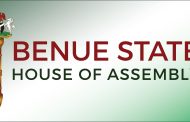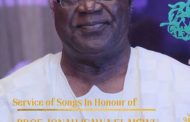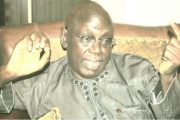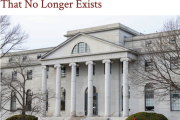In a chapter he contributed to a book of tributes to mark my 50th birthday, some 14 years ago, Seun gave a reverting account of our first encounter in October 1979 when we reported, as freshmen and as undergraduates at the University of Jos, Jos, Plateau State. I disagreed with the character attributes he gave as his first impression on seeing me, but that’s not the issue here.
In that said tribute, he recalled that I made him to stand for Vice President of our Sociological Students Association election in our 2nd year in an election we won and that together we transformed the fortunes of the Departmental Students’ Association- the Jos University Sociological Students’ Association (JUSSA) such that it became a rallying point and a radicalizing students association of note in the entire university.
In that piece, Seun also gave account of how against all odds, three of us from the same sociology class in the third year campaigned on a presidential ticket and won the students’ union election in 1981. Seun dissembled information as follows:
In the 81/82 session, the Student Union Election was very stormy.
Again, John came and said, himself, myself and another of our
Sociology Classmate-Festus Osayi were going to be on the
progressive presidential team to be led by (the late) Musa Yelwa.
We didn’t think it was feasible to have three members from one
class in one ticket.
Again…we won the elections with John as Welfare Secretary
in charge of the Cafeterias and Students Butteries;
I was PRO and Osayi was Treasurer of the Students’ Union
under Musa’s leadership. And UNIJOS was never the same, again.
Gone were the aristocratic mein student union officers were
noted for and the entire student community transformed
from their meekness to a vibrant and active community.
For a start, we abolished all the preferential treatment
for Student Union Executives. Rather than use the
Official Residence of the Student Union Executives
uncritically called “The White House”.
We all stayed in our previous accommodation
sharing rooms with other students as was the
case before our election. Similarly, we stopped
the practice of Union Executives going behind the
counter (in the kitchen) to collect their food.
All had to queue up like the rest of the students,
except members of the Food Committee who
had to supervise and ensure that all was well
at the cafeteria and usually ate last:” (p.38-39)
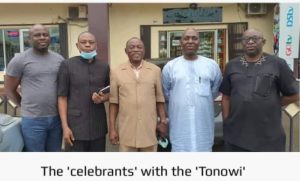
The late Salako (first from the right) in an August 2020 pix at a John Odah birthday
My one quarrel with Seun’s account (which unfortunately I didn’t remember sharing with him) is that he omitted what I thought was one of our main achievements in that student union executive: that I convinced the Exco to regulate the price of the drinks in all butteries operating in the campus hostels. The maximum anyone could sell a bottle was 50k – that I remember was for the chosen brand.
Before I move on from our activities as student union activists on campus, I also remembered that the University authorities sponsored a campaign that we were causing so much “instability” on the campus became we were unserious students who may not even be able to graduate because of our poor academic performance in our respective disciplines. But when we were graduating in June 1983, Seun, Osayi and myself were among the best in our class, each posting a very high second-class upper degree grade. Seun went on to do a master’s degree at the University of Lagos (UNILAG), Osayi went on to study Law and became a Barrister of Law while I stayed on in the Department to do a master’s degree immediately after our National Youth Service in 1984.
Seun’s humanism and the much-observed character trait of caring for the welfare of others have been partly drawn from his experience while growing up. He learnt printing as an apprentice printer in Lagos and Ibadan about seven years after finishing primary school. Towards the end of his apprenticeship, he did extra moral classes and passed his O’level and proceeded for his Higher School Certificate (H.Sc) at Federal School of Arts and Science, Mubi in present day Adamawa State. These experiences early in life speaks to someone gathering huge life’s lessons by working his way through the ranks.
At the University, Seun joined the Movement for the Advancement of African Societies (MAAS) when we entered UNIJOS in October 1979 as first year undergraduate students. MAAS exposed us to reading widely especially progressive authors such as Walter Rodney’s How Europe Underdeveloped Africa; Frantz Fanon’s The Wretched of the Earth; Kwame Nkrumah’s Neo-Colonialism: The Last Stage of Imperialism; and writings of Amilcar Cabral, among several others. These progressive and radical authors exposed us early in life to the contradictions of our modern society. Seun, as well as others colleagues learnt as much from this informal education as the formal classroom lectures.
While some changed their world view after their university education, these ideals remained and shaped Seun’s lifestyle and vision of society throughout his adult life. This is responsible for the deep patriotism and commitment to a humane and just society that many colleagues, contemporaries and former students attributed to him.
Four years ago in the course of working with other friends and associates of Seun to mark his 60th birthday, I was exposed to a core of dedicated former students of his in the quarter of a century he spent as a classroom teacher with the Lagos State Government, as well as colleagues he had taught with and other social friends, outside his Mubi and UNIJOS peers.
As many of the tributes have shown, Seun was a dependable friend, a compassionate and amiable counselor, a confidant and a deeply religious person. Unless you were close to him you won’t know that he was deeply spiritual because he did not wear his commitment on his face. It is therefore true that some may be taken aback that Seun was also an ordained Pastor in the vineyard of the Lord!
The news that came out of Ibadan that Seun had departed from this world in the early hours of Sunday, 7th January, 2024 took all his friends, associates, staff and others who knew him by surprise. It was a major shock! Trying to pass on the information to a couple of his staff in Labour House Abuja and his other friends was an experience in shared grief and sorrow.
The shock and sorrow of Seun’s premature departure to the great beyond has been matched by the commitment of the circle of his friends, colleagues and former students who coalesced to give him a dignifying burial once the family decided that he would be buried within two weeks of his demise. The outpouring of support from Seun’s associates is an affirmation that he was genuinely loved and respected by those whose lives he touched in his sojourn on earth.
Seun is survived by Dapo, his senior son; and Ayofe (soon to turn 18 years); two grandchildren; sisters; and brothers; among other extended family members.
Seun, you have played your part! Go in peace as you begin your homeward journey!! We shall meet in paradise !!!




